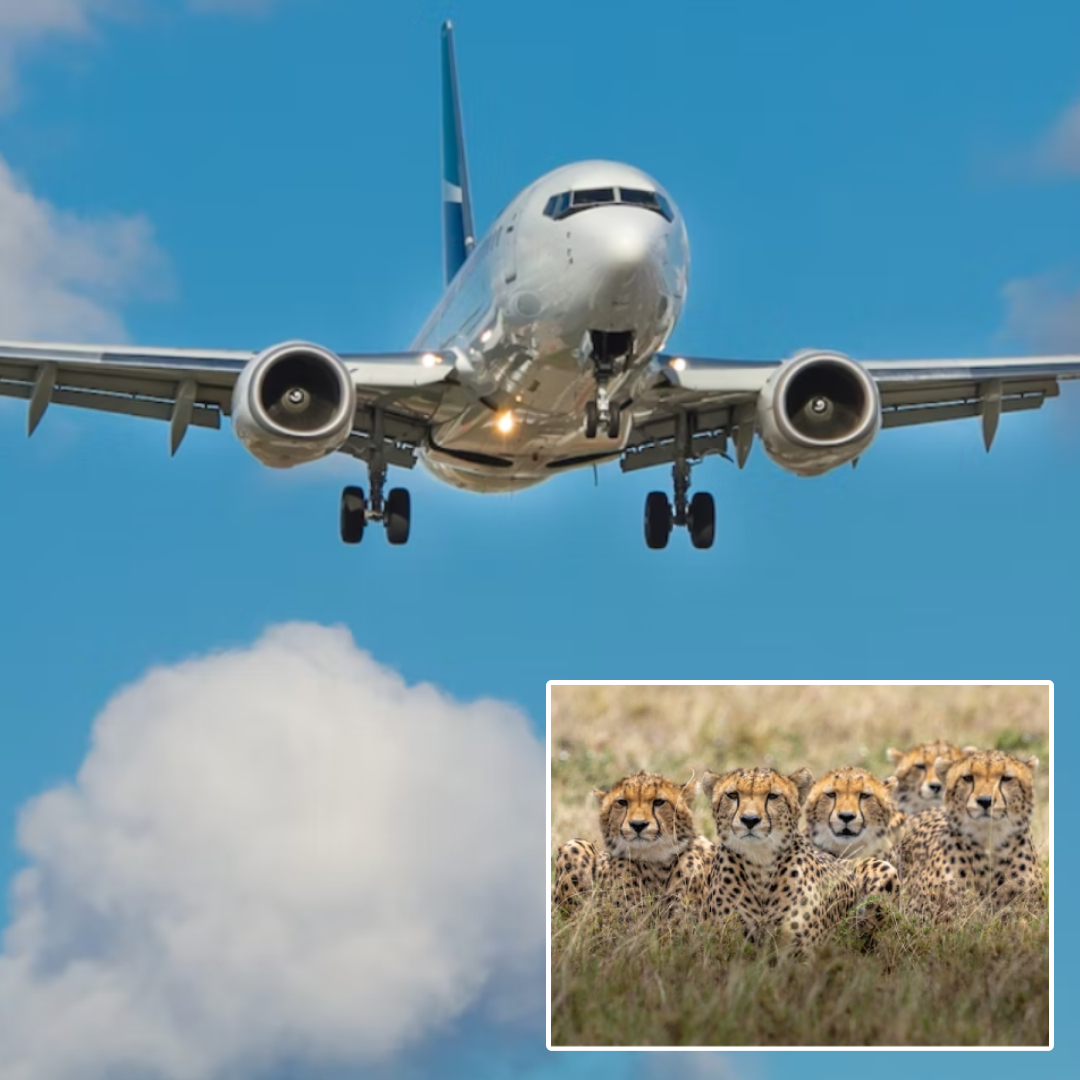Customised Plane To Bring 8 Big Cats From Namibia To India: Know Everything About 'Project Cheetah'
Writer: Ronit Kumar Singh
A confident and reliable journalist who always desires to toss the unheard voices. I cover politics and governance extensively through stories.
India, 16 Sep 2022 5:33 AM GMT | Updated 16 Sep 2022 3:43 PM GMT
Editor : Shiva Chaudhary |
A post-graduate in Journalism and Mass Communication with relevant skills, specialising in content editing & writing. I believe in the precise dissemination of information based on facts to the public.
Creatives : Ronit Kumar Singh
A confident and reliable journalist who always desires to toss the unheard voices. I cover politics and governance extensively through stories.
After 70 years, when they went extinct in the country, Cheetahs are now all set to walk again on the Indian lands. On September 17, the big cats will be brought to Kuno National Park from Namibia as part of a special assignment.
The cheetahs are set to walk again on the Indian lands after they went extinct seventy years ago. On Thursday (September 15), a specially customised tiger-faced B747 Jumbo Jet arrived in Namibia to ferry the big cats. As part of the Intercontinental Translocation Project, India is now ready to host eight cheetahs in Madhya Pradesh's Kuno National Park.
The aircraft carrying the cheetahs in the historic transcontinental mission has been flown overnight, as the coolest hours of the day are best suitable for such animals. The aircraft is scheduled to land in Jaipur on Saturday (September 17) morning, from where the cheetahs will be transferred to Kuno National Park by the heavy lift Chinook helicopter deployed by the Indian Air Force (IAF).
Prime Minister Narendra Modi will release the cheetahs in the Kuno National Park on September 17, which will also mark his 72nd birthday. A total of eight Namibian wild cheetahs will be inducted into the forest, consisting of three males and five females. The intercontinental translocation project will become one of the biggest that has taken place across the world.
After cheetahs went extinct in 1952, the Indian government committed to returning the big cats to various locations within the nation. In the first assignment, Kuno National Park will host eight Namibian cheetahs as its facilities have been revamped, managing committee members have been trained, and the predators have been removed, reported India Today.
Why Is Project Cheetah Important?
The Supreme Court of India approved the project cheetah in January 2020 as a special program that will bring back extinct species to India. The Republic of Namibia and India signed a Memorandum of Understanding (MoU) in July 2020, focused on the conservation of cheetahs. For the first time, a batch of wild southern African cheetahs will be introduced in India or Asia.
Primarily, cheetahs live in grasslands and benefit the ecosystem by keeping the species it hunts at a healthy population level. If cheetahs no longer existed, there would have been a domino effect, often referred to as a trophic cascade. There would be a significant increase in herbivores, resulting in loss of vegetation, soil erosion, less water in required places, and a negative impact on the ecosystem.
The eight cheetahs to be introduced in India consist of three males and five females, aged between two to five years. Generally, the life expectancy of cheetahs is eight to 12 years, meaning the batch of cheetahs arriving in India is young. The big cats will effectively bring back the healthy ecosystem in Kuno National Park.
 All section
All section















